Η Ellen Silverman είναι Αμερικανίδα φωτογράφος που φωτογραφίζει υπέροχα ό,τι έχει σχέση με φαγητό. Πριν από δυο χρόνια πήγε στην Αβάνα κι άρχισε να φωτογραφίζει κουζίνες.
«Σε κάθε μου επίσκεψη εκεί, κάθε πρωί έπαιρνα τους δρόμους», λέει σε ένα παλιό Saveur, «έμπαινα σε αυλές από κάποτε μεγαλοπρεπή κτίρια και χτυπούσα τις πόρτες τυχαία, χωρίς να ξέρω τι με περιμένει όταν οι άνθρωποι τις άνοιγαν. Σε κάποια διαμερίσματα υπήρχαν μεγάλες, ευρύχωρες κουζίνες και σε πολλά μόλις και μετά βίας ξεχώριζαν. Σε κάποιο κτίριο είδα ένα γκαζάκι με δυο μάτια πάνω σ’ ένα τραπέζι, στον εξωτερικό διάδρομο και ένα κομμάτι κοντραπλακέ να κόβει τον αέρα». Δεν το έχει με την αφήγηση η Ellen. Με τέτοιες υπέροχες φωτογραφίες θα περίμενε κανείς να έχει και ωραίες ιστορίες να διηγηθεί, αλλά στο άρθρο υπήρχαν μόνο δυο βαρετές αναμνήσεις. Το μόνο που έχει ενδιαφέρον από όσα γράφει είναι αυτό: «Μετά από πολλές επισκέψεις άρχισα να παρατηρώ ότι στις κουζίνες υπήρχε μία έντονη απουσία φαγητού, τα ράφια άδεια, δεν υπήρχε φαγητό στα ντουλάπια και στο τραπέζι, στη χώρα τα απαραίτητα είναι σπάνια εδώ και πολύ καιρό. Αυτές οι κουζίνες μπορεί να περισσεύουν [!] αλλά είναι όμορφες».
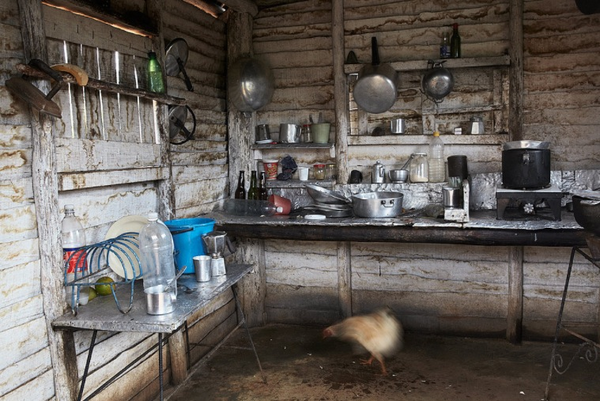
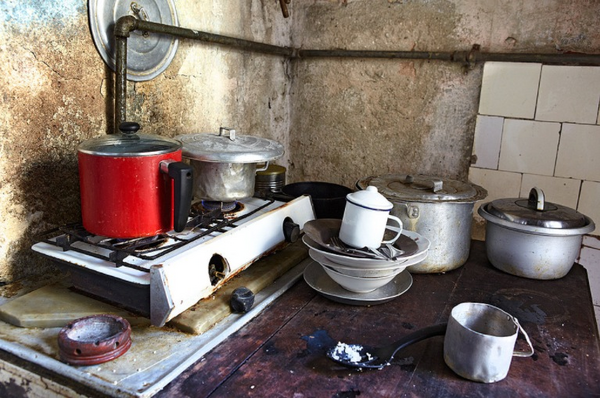
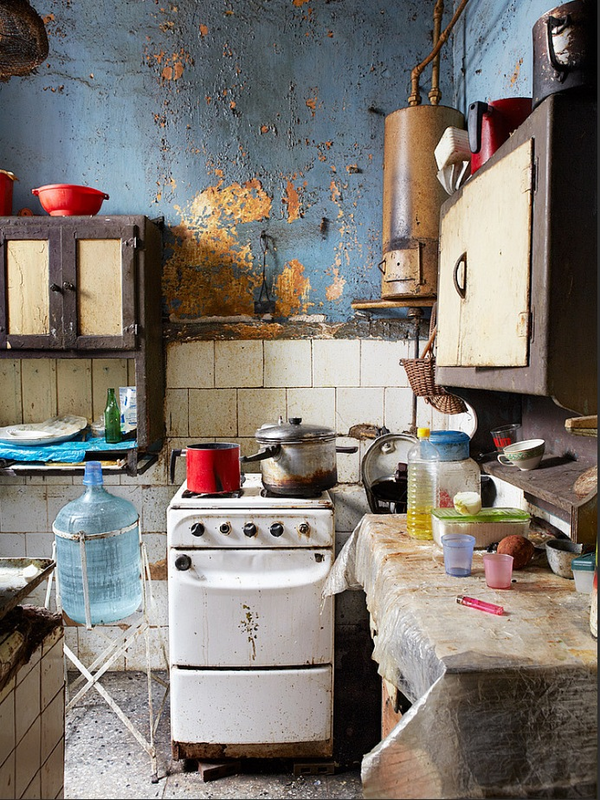
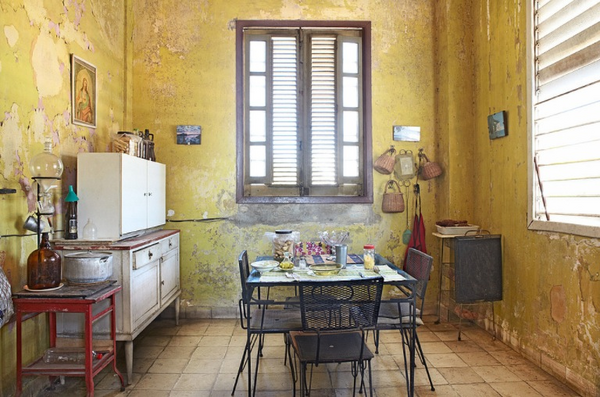
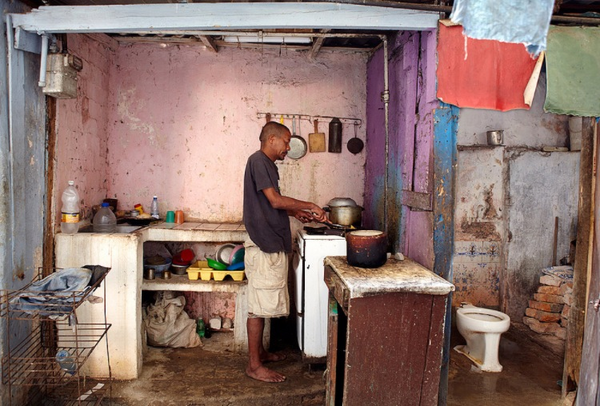
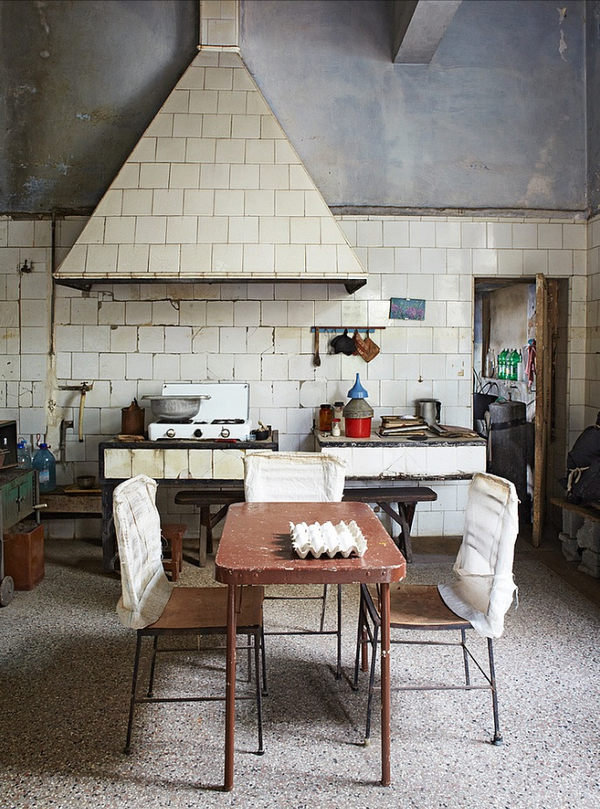
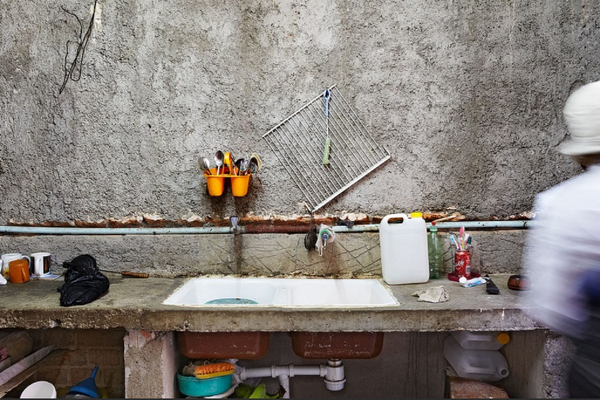
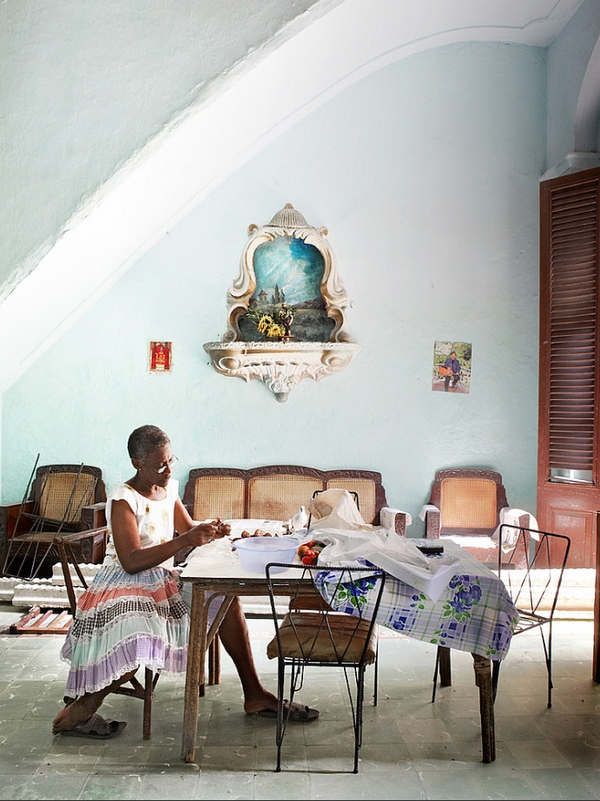
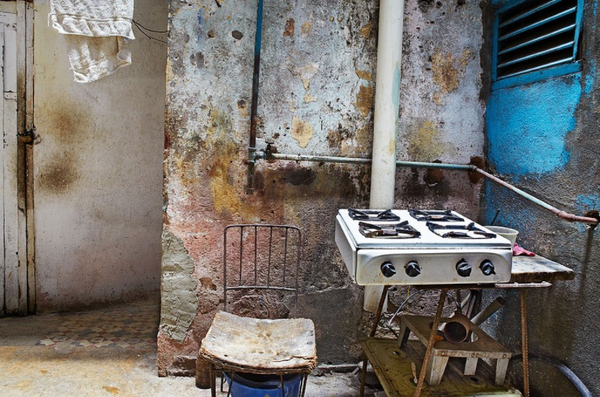
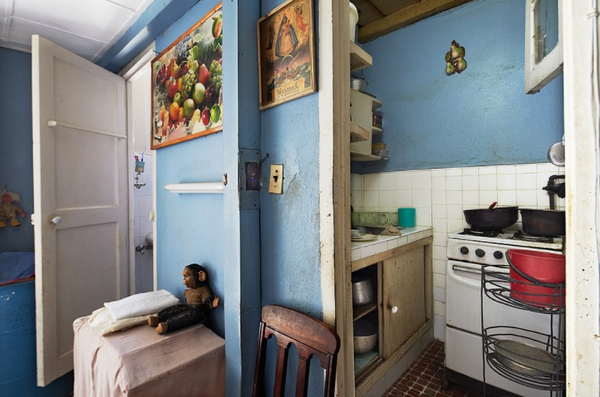
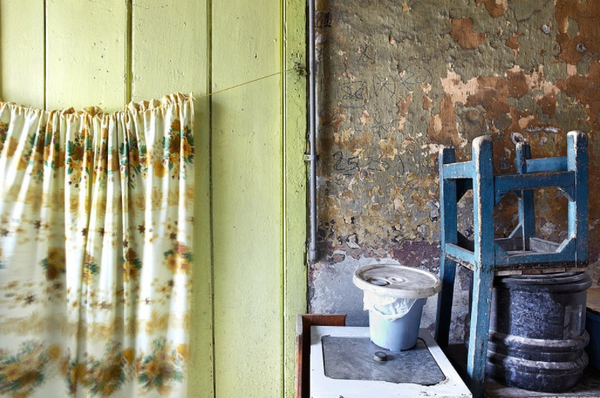
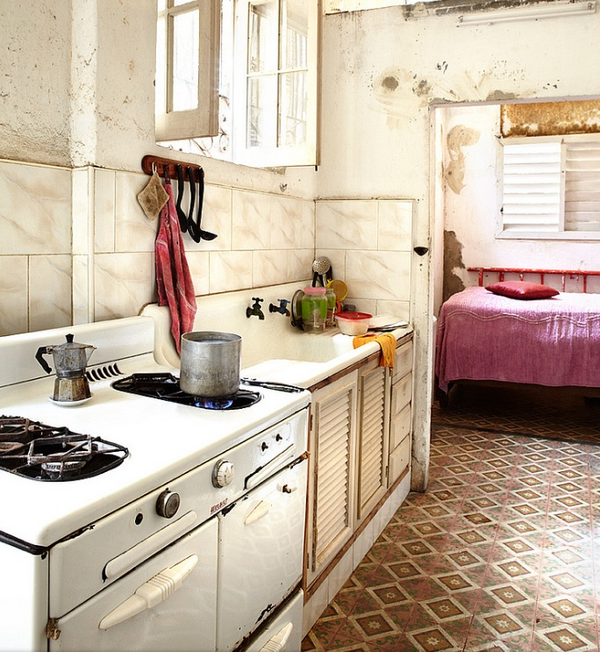
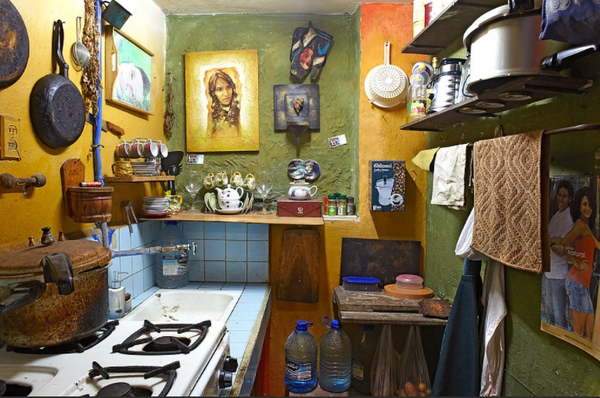
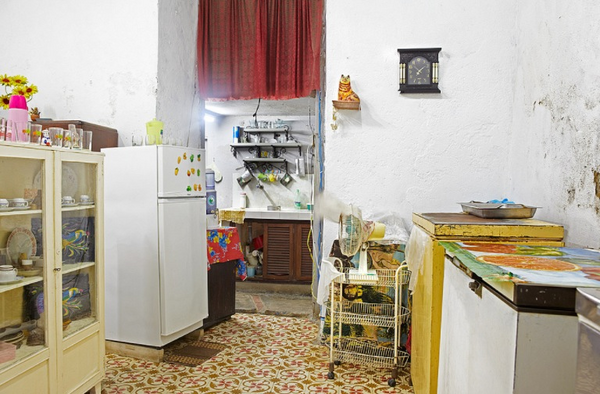
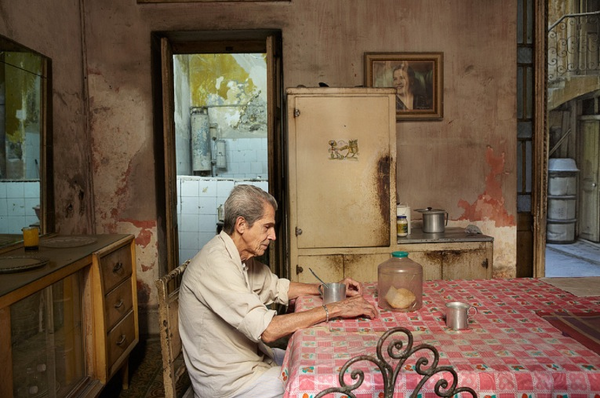
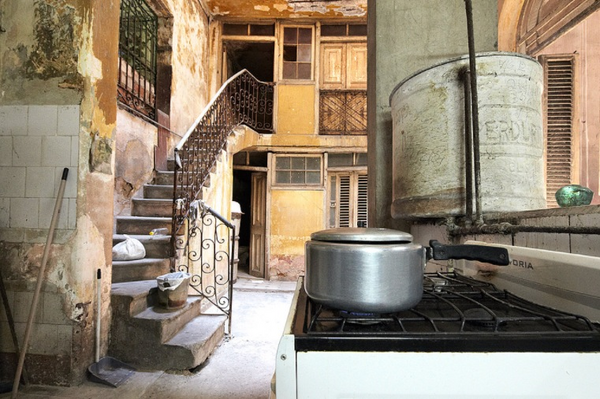
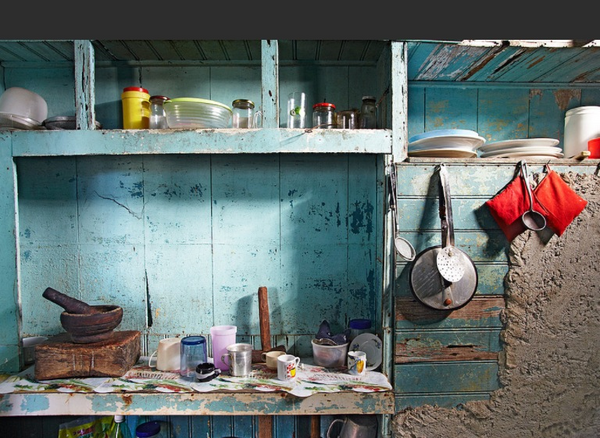
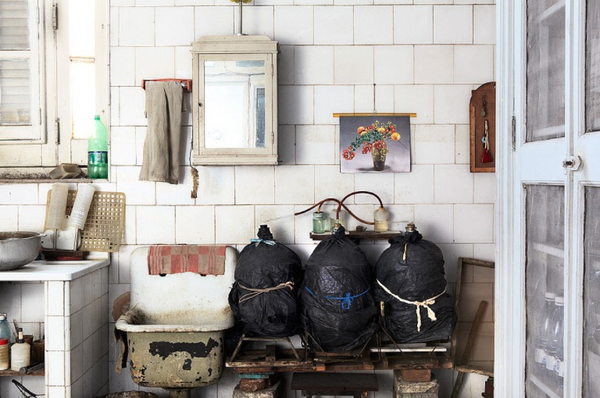
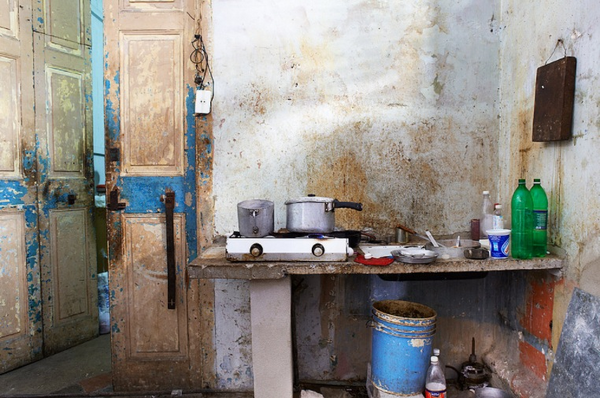
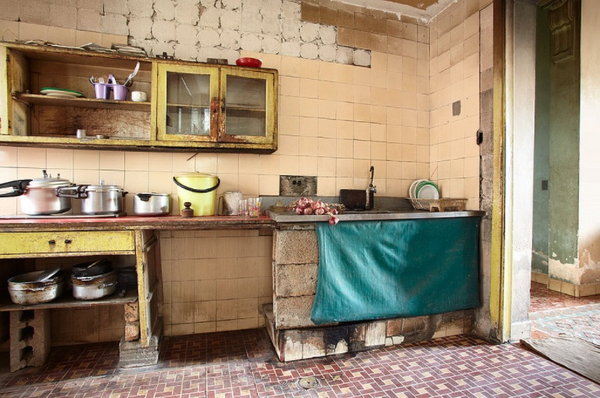
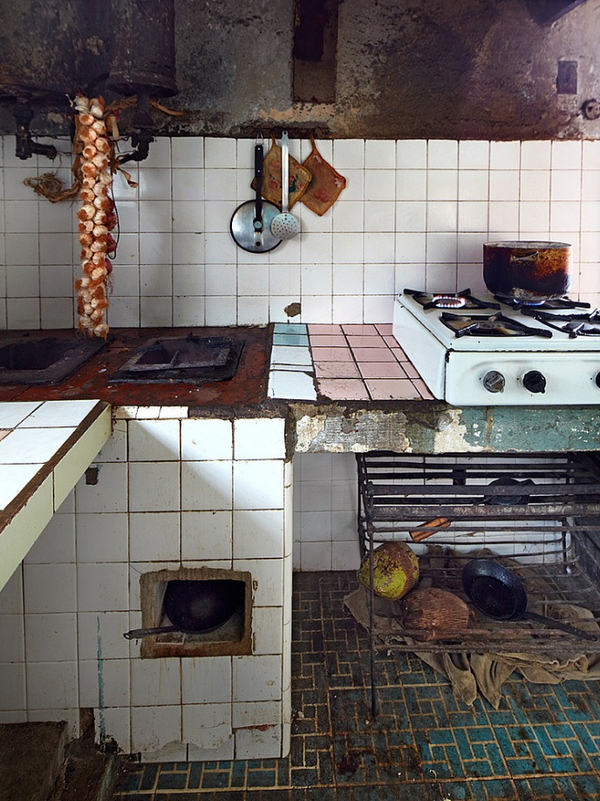
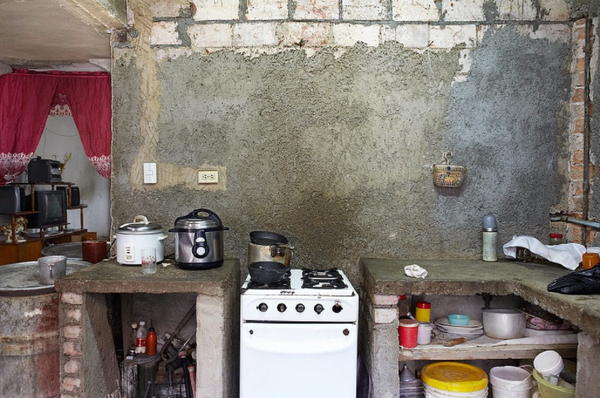
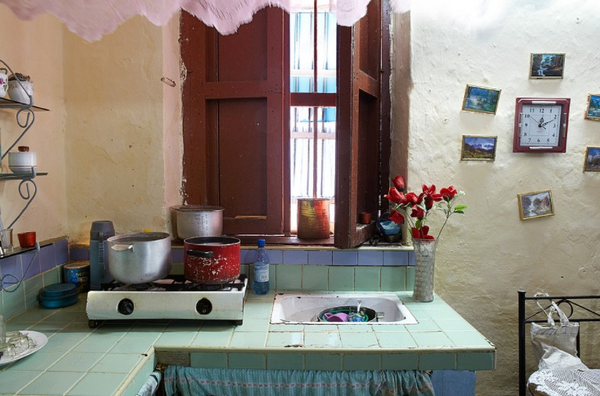
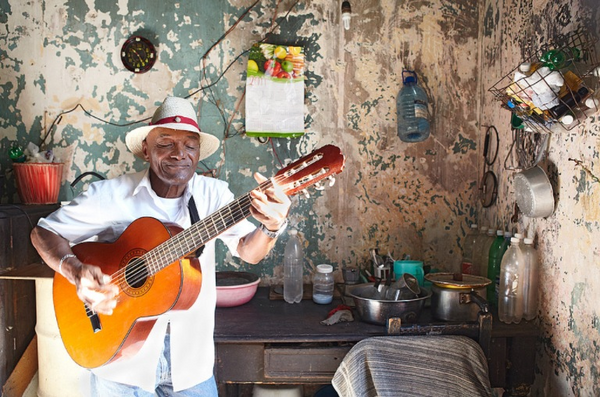
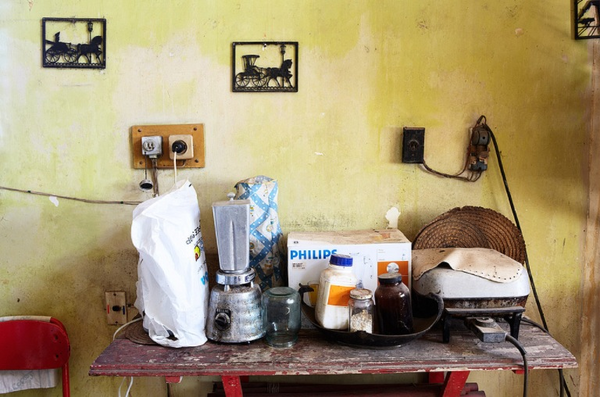
The PIGS
Ο Carlos Spottorno ζει κι εργάζεται στη Μαδρίτη. Το καλοκαίρι κυκλοφόρησε το PIGS, ένα φωτογραφικό λεύκωμα -που αντιγράφει το logo του Economist- με φωτογραφίες από τις τέσσερις ευρωπαϊκές χώρες που έχουν πληγεί περισσότερο από την οικονομική κρίση. PIGS είναι ο όρος που χρησιμοποίησαν τα έντυπα για να αναφερθούν στην κατάσταση των τεσσάρων χωρών που έχουν υποστεί τις περισσότερες συνέπειες: της Πορτογαλίας, της Ιταλίας, της Ελλάδας και της Ισπανίας (από τα αρχικά της κάθε χώρας στα αγγλικά). Γράφει ο Carlos:
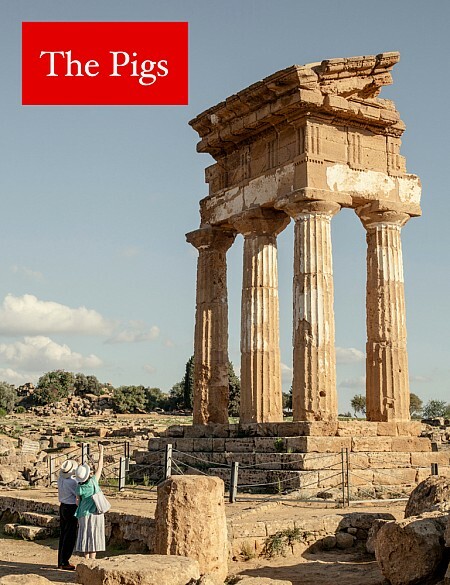
I have often asked myself how, after so many centuries of splendor, could these countries have come to their current destitute state. What happened to Greece, the cradle of Western Civilization? What became of Italy, heir to the Roman Empire and endowed with one of the richest artistic heritages in the world? What went wrong with Portugal, the first global naval power in history? At what point did Spain and its empire, on which the sun never set, see the onset of their decline? I believe the root-cause of our countries’ current sorry state of affairs is to be found in the distant past. Issues that for many centuries piled up on our doorsteps are now rearing their heads and plain to see.
Classical Greece and its world disappeared with the eclipse of the ancient schools of philosophy. Greek culture waned during the Byzantine Empire, becoming almost buried during the time of Ottoman rule. The difficult process of rebuilding its national identity in the 19th Century was overseen from the start by other European powers.
Italy fragmented at the fall of the Roman Empire. The presence of the Pope in Rome, the only bond among the numerous states that comprised the Italian peninsula, made the establishment of a central secular power impossible. In spite of which Garibaldi was able to unify the country, albeit in a somewhat artificial manner, in the 19th Century.
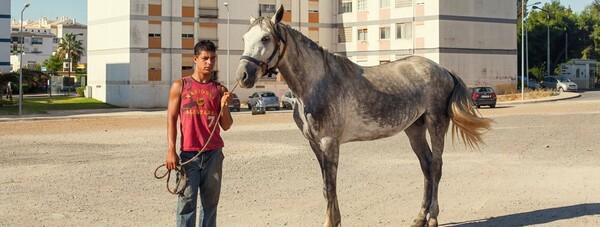
Portugal, after controlling the main African sailing routes, saw its position falter with the discovery of America, and the consequent obsolescence of its trade with the East. The Great Lisbon Earthquake of 1755 leveled the country in many ways. The Colonial Wars of Independence at the end of the 20th Century impoverished even further an already poor country.
In as much as the discovery of America served to enrich Spain greatly, it also engendered an empire of courtesans and administrators with no entrepreneurial spirit. The Catholic Church prevented the Enlightenment from flourishing. The gradual loss of its colonies, and 40 years of dictatorship under Franco deepened its economic and social backwardness.
And so it is that, over time, a significant discord developed between the perception the PIGS have of themselves, fed by an idealized view of their own past, and the weakness of the foundations on which they actually stand. The PIGS view themselves, rightly, as the architects, and as the stem cells from which the idea of Europe developed. Southern Europe resists admitting its loss of political stature in the global political arena, seeing itself as the wellspring of Western Civilization. Both in the institutional sphere, and at a personal and individual level, the PIGS embody a paradox. An overblown perception of their own relevance that clashes with an inferiority complex standing between their own desire of greatness and the reality of their situation.
The PIGS are all old, cynical and individualistic countries. The sense of community, so deeply rooted in Northern European countries, is very weak in the PIGS, carrying as they do upon their backs the weight of centuries of a highly hierarchical social structure, and being accustomed to both authoritarian and corrupt governments. People have turned their backs on the political class, from which they don’t expect much, if at all, and seek to improve their wellbeing exclusively from a personal standpoint; an attitude that constitutes both an evolutionary advantage for survival, and a factor hindering social progress. Meanwhile, the family as a social institution has maintained its authority, serving both as a refuge and as a prison.
To link με το σάιτ του όπου υπάρχουν πολλά από τα στόρι του βιβλίου είναι εδώ.


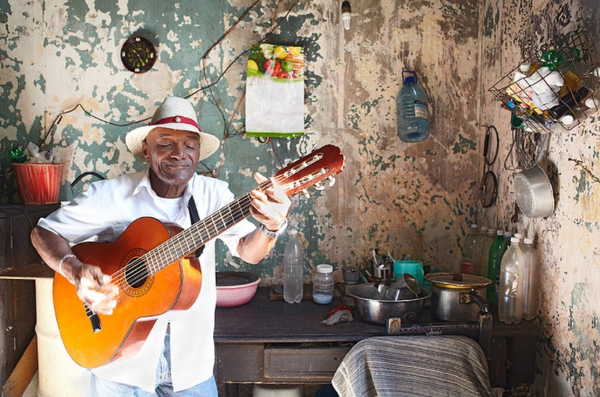

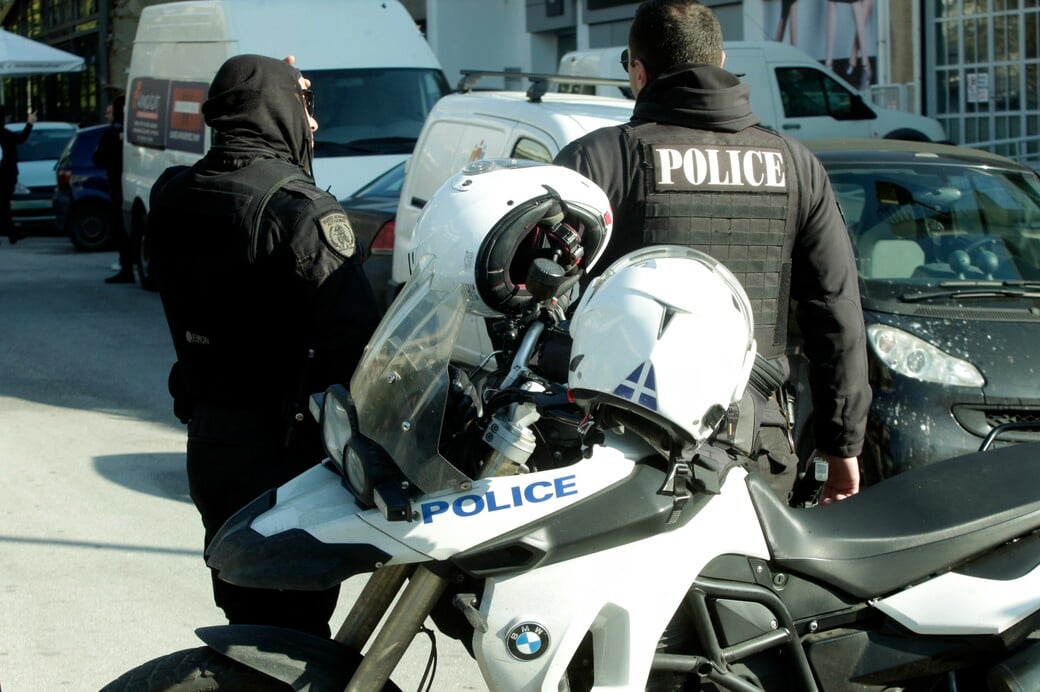



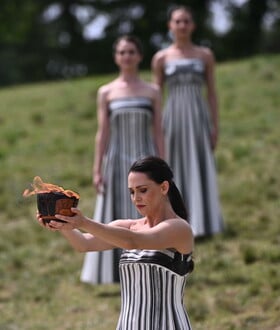
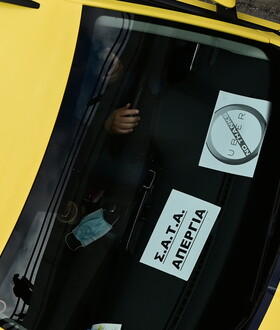
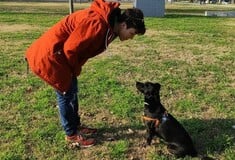
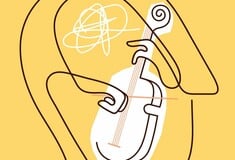
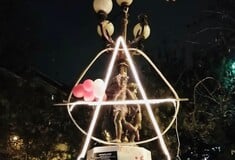


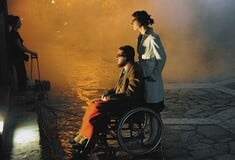

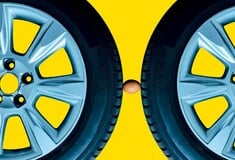


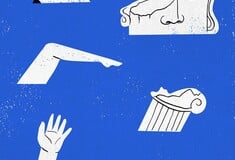





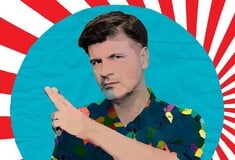


σχόλια